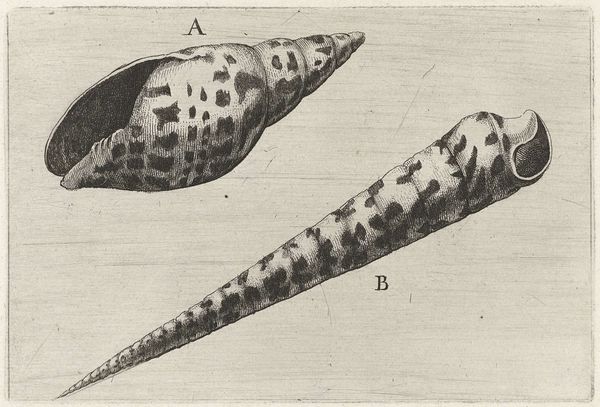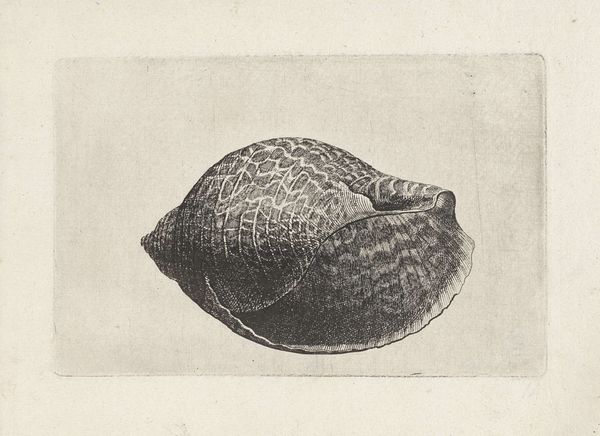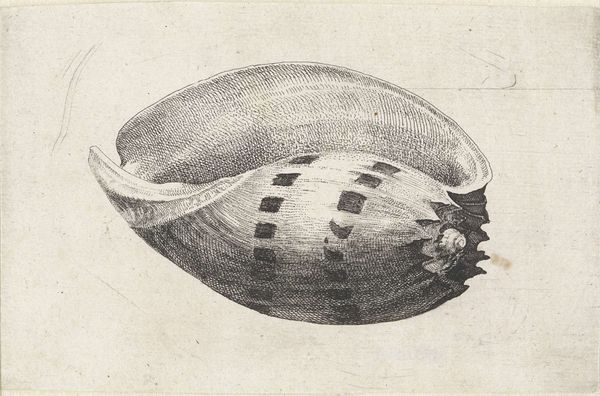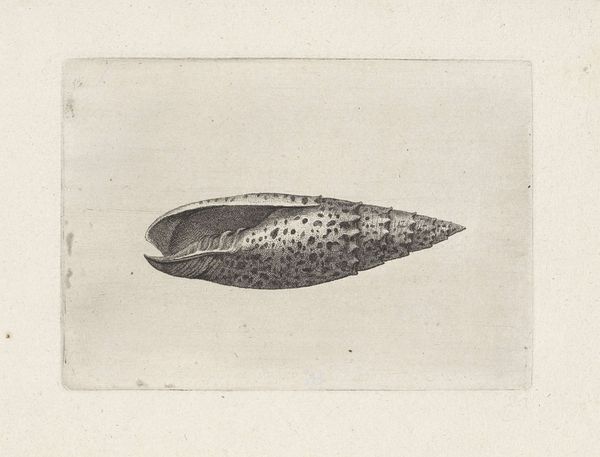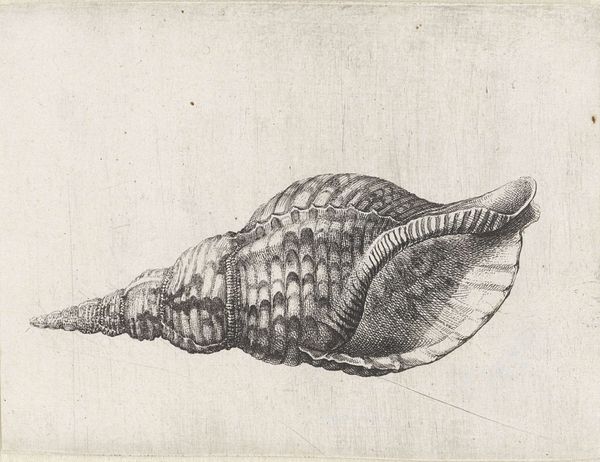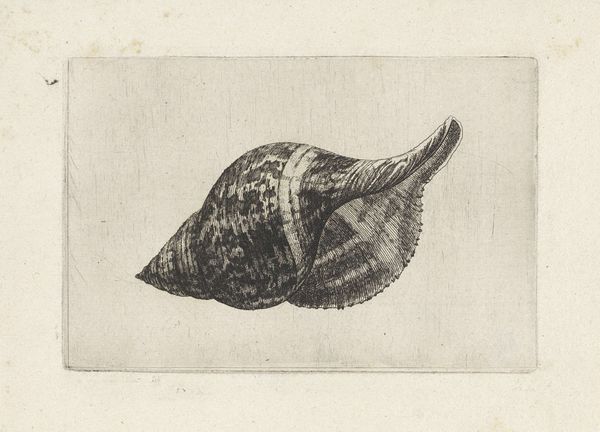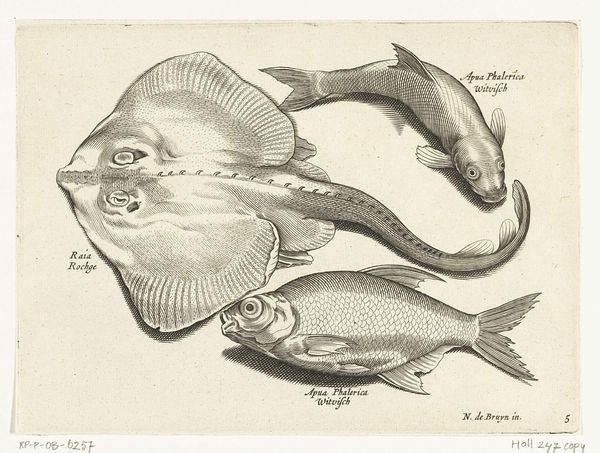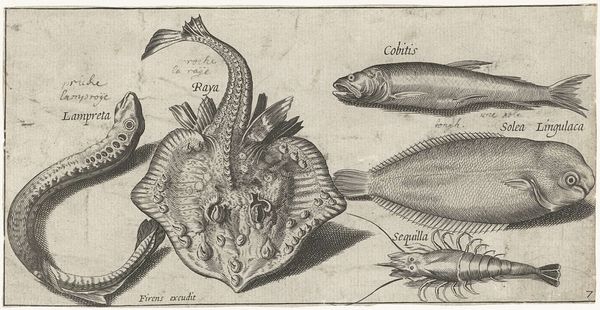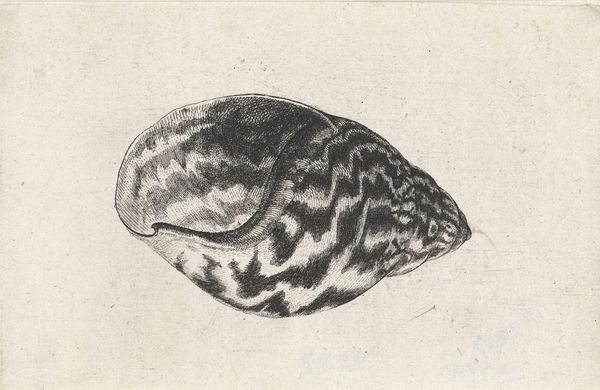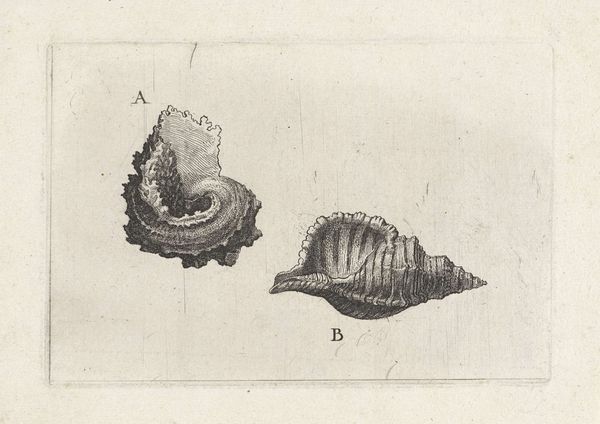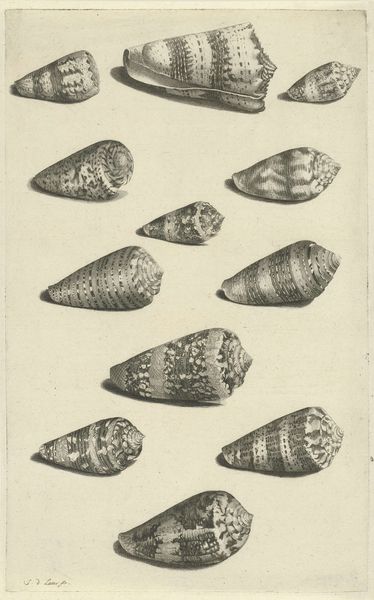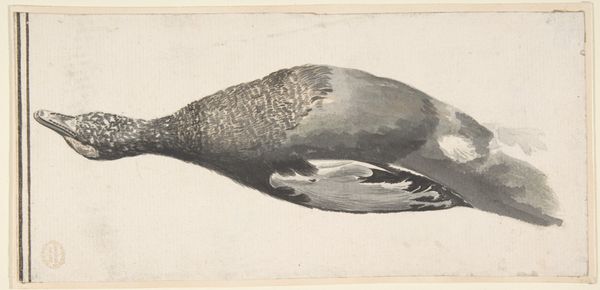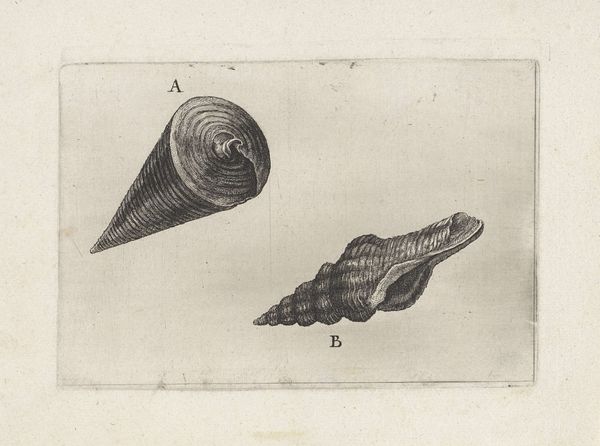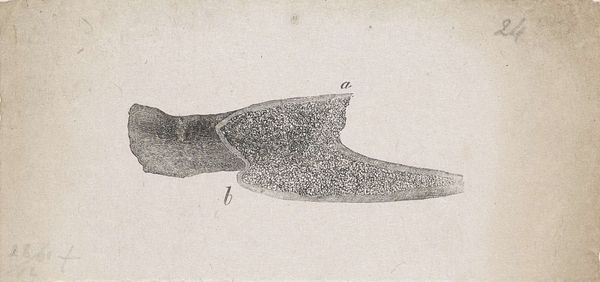
print, engraving
#
baroque
# print
#
old engraving style
#
portrait reference
#
line
#
engraving
Dimensions: height 94 mm, width 148 mm
Copyright: Rijks Museum: Open Domain
Here, Wenceslaus Hollar meticulously captures two Cypraea tigris shells, their spotted surfaces a canvas of nature's artistry. These shells, beyond their aesthetic appeal, resonate with ancient symbolism. The cowrie shell, in particular, has long been associated with femininity, fertility, and protection. Its form, resembling the vulva, made it a potent symbol in various cultures, from ancient Egypt, where they were used as amulets, to Africa, where they served as currency and adornment. Consider Botticelli’s Venus emerging from a scallop shell, a clear invocation of the shell’s connection to birth and renewal. The persistence of the shell as a symbol reflects a primal human fascination with the life-giving forces of nature. The subconscious allure of the shell lies in its enduring association with the origins of life, a link that transcends time and culture. The cyclical journey of symbols reminds us that the past is never truly gone, but rather, it resurfaces in new forms, perpetually shaping our present.
Comments
No comments
Be the first to comment and join the conversation on the ultimate creative platform.
